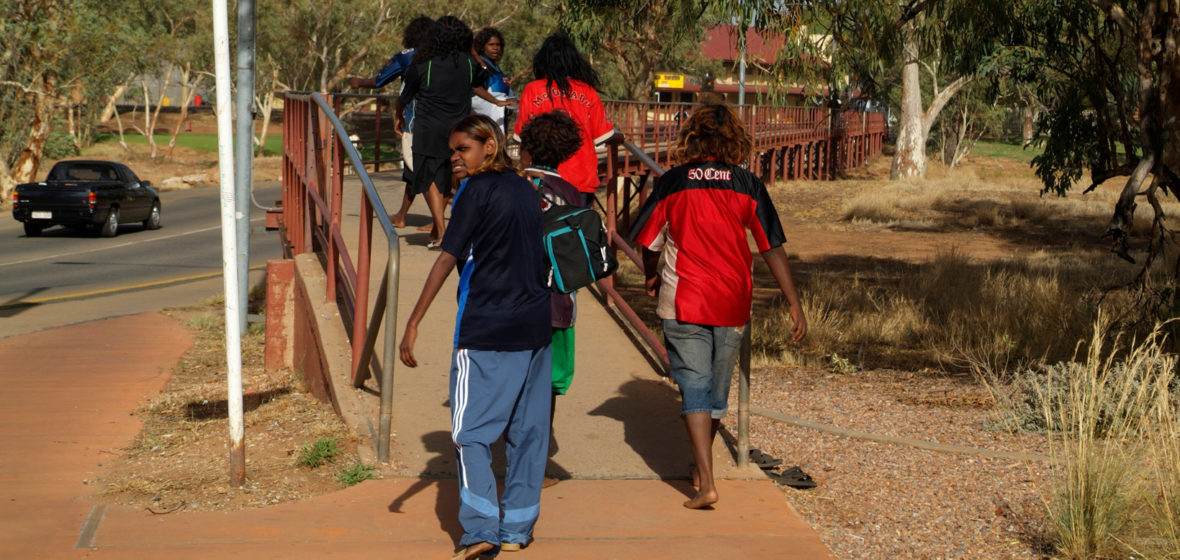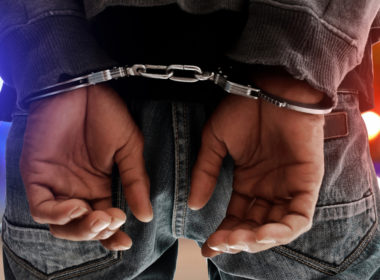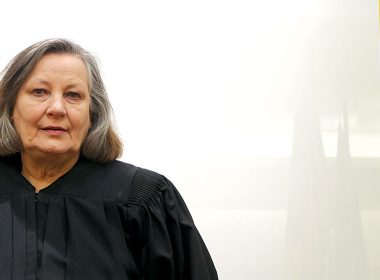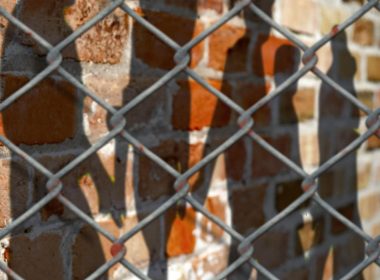Snapshot
- The Youth Koori Court was established in response to the over-representation of Aboriginal young people in the criminal justice system.
- The Court has been very successful at keeping Indigenous youth out of custody. Starting as an unfunded pilot in 2015, it was expanded to Surry Hills and in July 2022, the NSW Government announced the Court’s expansion to Dubbo.
- It is timely to take an inside look at how the Court works and what makes it so successful.
‘The supports have been so important because they’ve made it possible for me to believe in myself through them believing in me’.
These words were spoken by a seventeen year old participant in the Youth Koori Court (‘YKC’) to over 300 people during the 2022 BOSCAR Winter Seminar Series in June 2022. The words reflect the experiences of many young people who have come through the YKC since its commencement in 2015 as an unfunded pilot program of the Children’s Court in Parramatta.
These words are also an important reminder that the successes of the YKC are significant and multi-faceted. The YKC aims to reduce the incarceration of Aboriginal and Torres Strait Islander children and young people by identifying and addressing a young person’s needs and concerns that are often connected with their offending. Addressing these needs results in successes that are critical in their own right, such as increasing a young person’s self-esteem and their capacity to see themselves as leaders and contributors, rather than dismissing themselves as the ‘bad kid’.
The YKC is an important tool in reducing the over-representation of Aboriginal children in the youth justice system in NSW. It is not the only tool and cannot work in a vacuum, but it is a tool that we know works.
The aims of the Youth Koori Court
The NSW Children’s Court Practice Note 11: Youth Koori Court (‘Practice Note 11’) provides for the operation of the YKC. Practice Note 11 states that the five aims of the YKC are to:
- ‘increase Aboriginal and Torres Strait Islander community, including Aboriginal and Torres Strait Islander young people’s, confidence in the criminal justice system,
- reduce the risk factors related to the re-offending of Aboriginal and Torres Strait Islander young people,
- reduce the rate of non-appearances by young Aboriginal and Torres Strait Islander offenders in the court process,
- reduce the rate of breaches of bail by Aboriginal and Torres Strait Islander young People, and
- increase compliance with court orders by Aboriginal and Torres Strait Islander young people.’
In essence, the YKC aims to support Aboriginal young people to achieve their full potential by asking them what they need to succeed, and endeavouring to provide that support to the young people and their families. That conversation is facilitated under the guidance of an Aboriginal Elder or respected community member, a specialist Children’s Court magistrate, an Aboriginal Legal Service (‘ALS’) lawyer, a civil lawyer from the Children’s Civil Law Service, Youth Justice case workers, Aboriginal community caseworkers and other parties.
How does the YKC work?
The YKC is a deferred sentencing model. It relies upon s 33(c2) of the Children (Criminal Proceedings) Act 1987 to provide for the deferral of a young person’s sentence to allow them to demonstrate their capacity for rehabilitation when given appropriate supports. Eligible young people are referred to the YKC by a sitting Children’s Court Magistrate on application by their lawyer.
Practice Note 11 provides that to be eligible for YKC referral, a young person must:
- ‘have indicated that he or she will plead guilty to the offence, or the offence has been proven following a hearing,
- be descended from an Aboriginal person or Torres Strait Islander, identify as an Aboriginal person or Torres Strait Islander and must be accepted as such by the relevant community,
- be charged with an offence within the jurisdiction of the Children’s Court that is to be determined summarily,
- at a minimum, be highly likely to be sentenced to an order which would involve Juvenile Justice supervision,
- be 10 to 17 years of age at the time of the commission of the offence(s) and under 19 years of age when proceedings commenced, and
- be willing to participate.’
Something has to change and the Youth Koori Court provides the structure, support and cultural connection to achieve this change.
The YKC is designed for young people with the most complex needs and who are at risk of spending significant periods of time in custody. Entering the YKC is a significant undertaking. It is rare for a young person to spend less than six months in the Court and many spend far longer than that. The program requires honesty and vulnerability from its participants. Young people sit at the YKC bar table alongside their lawyer and family and (mostly) speak for themselves. They work intensively with support services. For many young people in the YKC, it may be easier to be sentenced in a mainstream court. However, for these young people, the ‘something easier’ has not worked and they often come to the YKC with bail refused and are struggling to comply with their Youth Justice supervision. Something has to change and the YKC provides the structure, support and cultural connection to achieve this change.
There are four types of appearances in the YKC: an initial suitability assessment to join the Court, followed by a conference where an Action and Support Plan is prepared, a number of progress reviews, and finally a ‘graduation’ where the young person is ultimately sentenced. The Action and Support Plan is the guiding document and it sets out the immediate needs and long term goals. This includes accommodation, disability and mental health support, cultural engagement, education and work opportunities. Importantly, it also specifies the parties responsible for working with the young person to meet those goals. As stated by one young person during the evaluation published by Inside Policy in June 2022:
‘Aboriginal kids get to sit down with Elders at a table, sort out their situation. [It’s] Heaps comfortable – more comfortable than being in the courtroom’.
The process has been developed and streamlined over time. In 2015, the process involved a young person appearing before a Registrar ahead of their appearance in front of a Children’s Court magistrate. Today, a young person will usually have the same magistrate guiding them through each appearance and this helps to develop a mutual understanding. Initially, proceedings were adjourned for months at a time. Today, young people attend court frequently after their release, with the length of time between appearances gradually increasing as a young person becomes more settled. Importantly, this process is youth led: if the young person wants to come back more frequently the Court will do its best to follow their lead. The length of involvement is also youth led and young people request to remain in the Court, even after the Court invites them to take a graduation date.
Success of the YKC and its expansion
Since its inception in 2015, the YKC has continued to expand. It started out as an unfunded pilot, with stakeholders such as the Children’s Court, ALS and Youth Justice absorbing the strain of the additional sittings and supervision. Elders participated without pay, giving up their time to attend Parramatta Children’s Court and support young people both inside and outside the Court. In 2019, the pilot expanded to Surry Hills Children’s Court following NSW Government funding of $2.7 million over three years. In July 2022, the NSW government announced funding of $5.8 million over four years to provide for a welcome expansion of the YKC to Dubbo. There is a need and a desire for the expansion of the YKC to other communities as well. There is still no specialist Children’s Court in Far Western NSW, Wagga Wagga or the Northern Rivers, let alone a Youth Koori Court.
Those who work within the Court know its impact, as do Aboriginal communities and other stakeholders across the State who call for YKCs in their locations. The recently released Inside Policy evaluation of the YKC found ‘overwhelming support for the YKC from its staff and stakeholders, as well as participants and their family members’. The evaluation emphasised the importance of the relationship between young people and Elders, the involvement of Aboriginal staff at all levels, and the importance of young people having a voice in decision making. Their cost-benefit analysis found that for every dollar invested in the YKC, twice that amount was saved in down the line costs.
Support for the YKC and its expansion can be found in the April 2022 NSW Bureau of Crime Statistics and Research (‘BOCSAR’) report. The report found that young people participating in the Court are 40 per cent less likely to be jailed than comparable Aboriginal young people who proceeded through the usual Children’s Court process, without any adverse impact on re-offending. This finding is particularly stark when we consider the gross over-representation of Aboriginal young people in custody, the impact of incarceration on a young person’s physical and mental wellbeing, and the impact that incarceration has on the wellbeing of their communities.
The success of the YKC is evident. Young people with children in their care are able to take care of the children, and they are embedded in and supported by a strong community. Young people are able to break the cycle of constant rotation between community and custody. For instance, a recent graduate of the YKC, who spent 2020 and 2021 in the YKC, did not spend a single night in custody during this period. In contrast, the same graduate had spent 55 per cent of her young life, between the ages of 11 and 14, in custody.
Of course, not all young people referred to the YKC graduate from the Court. It does not exist in isolation from our broader social and economic environment and it is not a magic wand. But it is a powerful tool that listens to children. It takes children, who would otherwise continue rotating in and out of prison, and helps them walk a different path. As one graduate, Josephina Bates, put it:
‘They encourage you and help you to really believe you’re capable of reintegrating back into the community, because when you first come out of Juvi, you’re kind of, in a sense, you’re hopeless for your future. You don’t believe that you can go anywhere or be anything after what you’ve been through. It breaks you and that comes back to trauma… that trauma that you go through. It breaks you to the point where you don’t believe that you can be anything anymore. I think in Koori Court they rebuild your confidence. They rebuild your belief that things can get better’.





